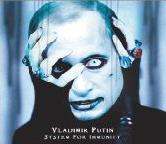For the past week, there has been increases reporting of the Security and Prosperity Partnership (SPP) between the U.S., Canada and Mexico. Otherwise characterized as "NAFTA plus", this initiative represents a growing threat to a host progressive values, and the discussions that are moving it forward are occuring largely behind closed doors.
"One thing we know Harper and Bush are up to is further integrating our economies. Under something called the Security and Prosperity Partnership (SPP), they're redesigning our economies to reduce the regulatory power of government and enhance the power of business. And who better to make up the new rules than business itself? Accordingly, last March, they turned to business leaders from the U.S., Canada and Mexico to come up with plans for more fully integrating our economies."
In most people's view "free trade" is seen as an inherent good, as the free movement of goods and services between partner countries for the benefit of all. However, buried deep in the original NAFTA deal is single clause that reveals the real intent of such agreements -
The Chapter 11 Clause:
For greater certainty, no Party may: (a) impose on an investor of another Party a requirement that a minimum level of equity in an enterprise in the territory of the Party be held by its nationals, other than nominal qualifying shares for directors or incorporators of corporations; or (b) require an investor of another Party, by reason of its nationality, to sell or otherwise dispose of an investment in the territory of the Party.
In lay terms this means that no country may create rules that stipulate a minimum amount of domestic (i.e. Canadian) ownership over a business enterprise and, most importantly, that a country cannot stop a foreign (i.e. American) company from continuing its business enterprises once it is established, regardless of its health, social or environmental impact.
Further it clearly specifies that:
Nothing in this Chapter shall be construed to prevent a Party from providing a service or performing a function such as law enforcement, correctional services, income security or insurance, social security or insurance, social welfare, public education, public training, health, and child care, in a manner that is not inconsistent with this Chapter.
Through Chapter 11, the foundation was laid for American control of Canadian police, health, education, and most importantly
natural resources. When this provision was included, it was entirely unprecedented in the history of free trade and provided broad new rights and priveleges to corporations that had never existed before.
Now the
SPP is being developed as an extension of the policies begun under NAFTA, but unlike the previous agreement, it is not being developed as a single law. Rather, it will be created through a range of intiatives
not available for citizen review, that share the common aim of integrating North American security, immigration and trade while freeing corporations from government oversight.
Ironically, it is the
right wing conservative organizations in the United States that have been the first to raise their voices against these policies, due to their potential impacts on immigration and sovereignty.
For the Canadian environmental movement, the SPP could be the equivalent of a slow death blow. By removing the ability for citizens and government to provide input and oversight to corporate activities and ownership, polluting industries and interests would be given a free reign to exploit the environment for their own profit, in addition to gaining greater access to other key industries such as education and health.
More on this as it develops.
To see a history of cases launched against the government of Canada under Chapter 11 click here.
 The BC Liberals are continuing with their parks privatization agenda by soliciting bids for the development of lodges and resorts in 12 provincial parks. The move is the latest business friendly policy for BC's parks system, with previous changes including the introduction of parking meters and the redrawing of the South-Chilcotin Park boundary to accommodate mining interests.
The BC Liberals are continuing with their parks privatization agenda by soliciting bids for the development of lodges and resorts in 12 provincial parks. The move is the latest business friendly policy for BC's parks system, with previous changes including the introduction of parking meters and the redrawing of the South-Chilcotin Park boundary to accommodate mining interests.



































